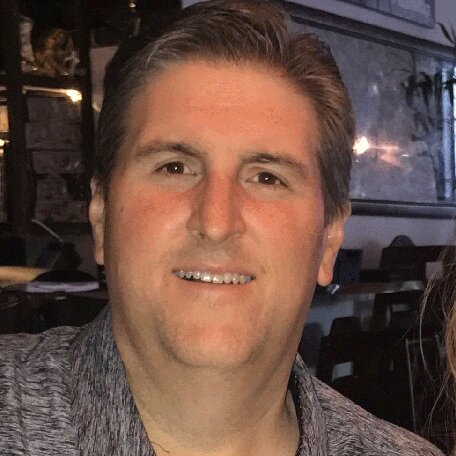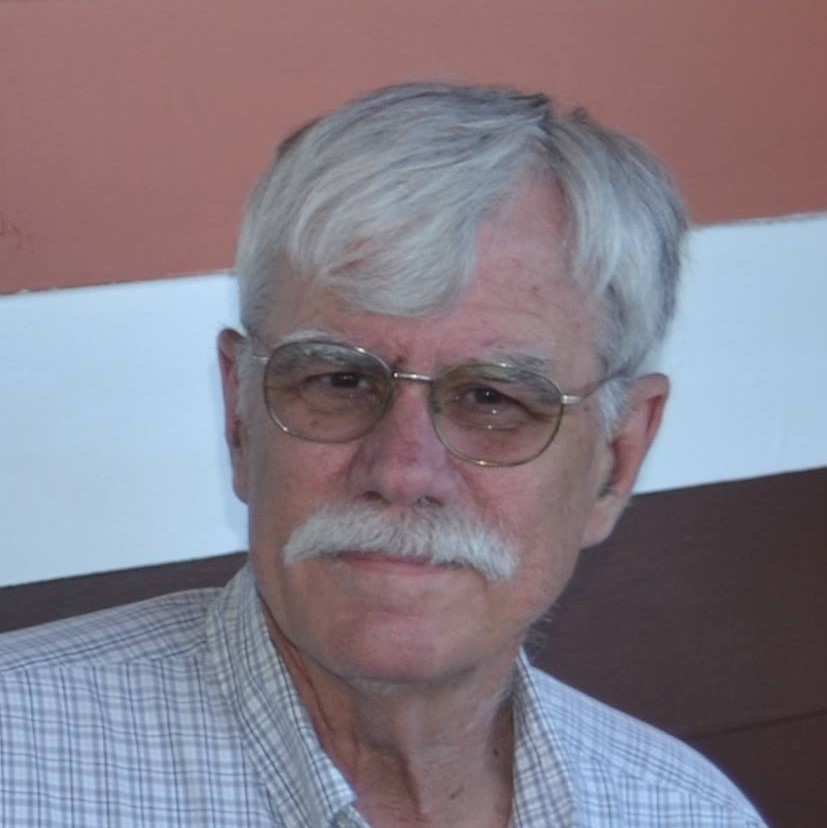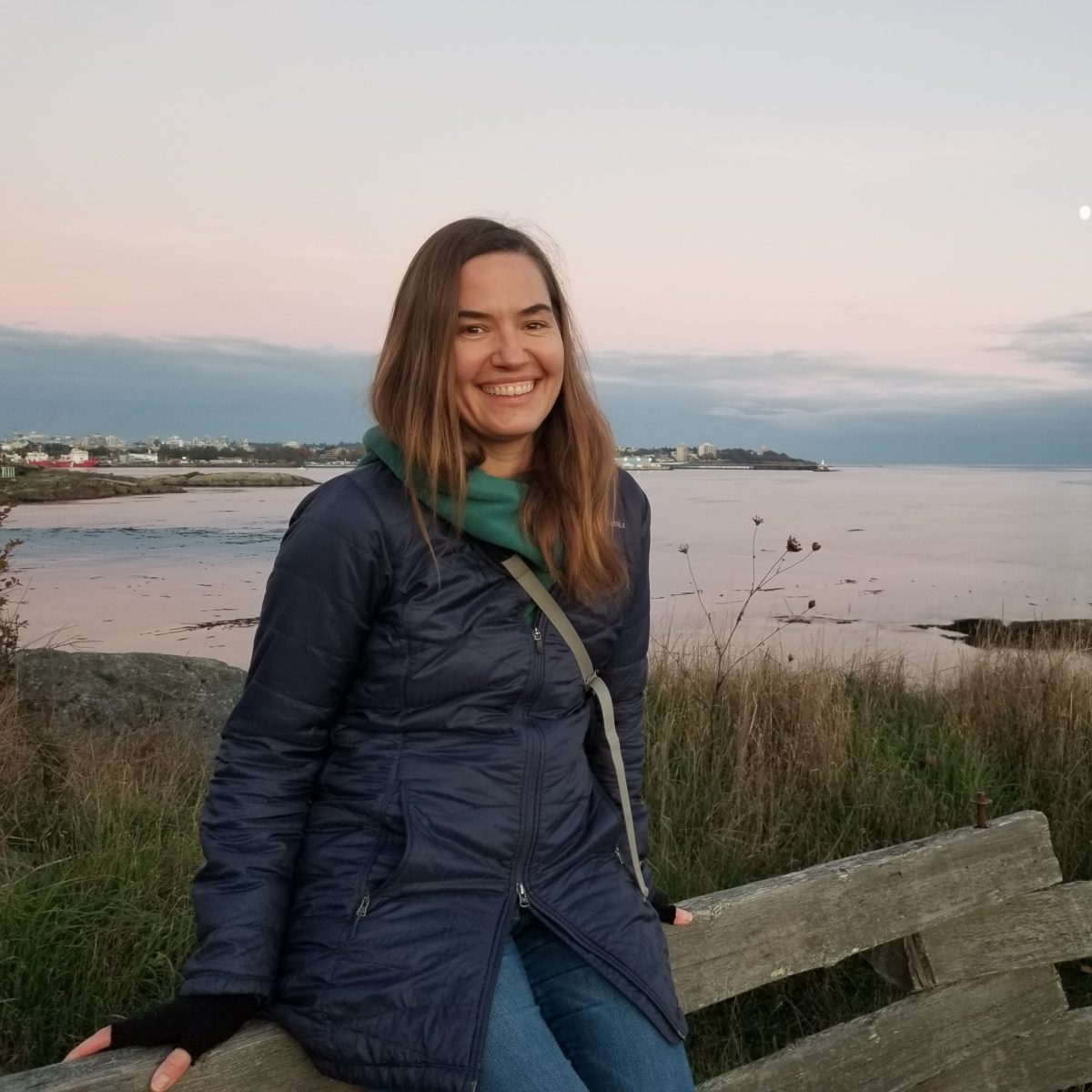Sean’s Chronic Lymphocytic Leukemia Story
Sean was diagnosed with chronic lymphocytic leukemia (CLL), the most common form of adult leukemia. In this story, he shares going through a clinical trial, how cancer impacted his relationship and living with cancer as a chronic illness.
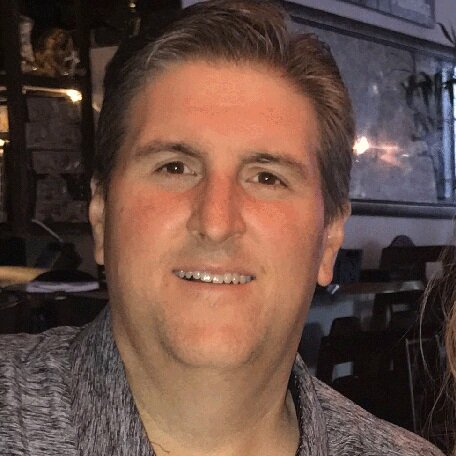
- Name: Sean R.
- Diagnosis:
- Chronic lymphocytic leukemia
- Subtype of leukemia
- Staging: N/A
- 1st Symptoms: N/A
- Treatment:
- Clinical trial
- Ibrutinib & venetoclax
- Clinical trial
Get it diagnosed. Get it taken care of. Get the right doctor.
Make sure you’re on a regimen that you’re comfortable with.
Sean R.
- CLL Diagnosis
- Why did you go to the hospital?
- Receiving the diagnosis
- How did they figure out the subtype?
- How did the doctor tell you about the biopsy results?
- What's a bone marrow biopsy like?
- How were you feeling when you were diagnosed with CLL?
- Breaking the news to loved ones
- When did you discuss your treatment plan?
- Clinical Trial
- Describe your clinical trial for CLL
- High levels of phosphorus
- Changing diet to lower phosphorous
- Vision problems
- Improving vision
- Blood pressure problems
- What other side effects did you get from the medications?
- How did the ramp up go the second time?
- What do you do through the clinical trial period?
- What are the next steps after the trial?
- Why did you choose to go on a clinical trial?
- Helping patients in the future
- What advice do you have for other patients about clinical trials?
- Creating a win-win for patients and doctors
- Reflections
This interview has been edited for clarity. This is not medical advice. Please consult with your healthcare provider for treatment decisions.
CLL Diagnosis
Why did you go to the hospital?
We have some really nice neighbors, and the dad had gotten sick with cancer, so I was shoveling snow for him. I have a snowblower, but it was wet and slushy, so I went out and shoveled for him. I came inside, and I said, “I pulled something in my shoulder.” I felt it while I was shoveling.
My wife said, “Which shoulder?” I told her it was my left, and she said, “You’re having a heart attack. We need to go to the hospital.”
I said, “I’m not having a heart attack. I just pulled my shoulder.” She just would not stop about the heart attack. I said, “Okay. Just so you’ll stop talking about it, we’ll go to the hospital.”
We get to the hospital, and I’m feeling so stupid. The nurse asks what’s wrong, and I explain that I pulled my shoulder, but my wife thinks I’m having a heart attack. They sent me to the ER. They gave me a bunch of tests.
Receiving the diagnosis
After waiting for all that to come back, a doctor walks in and says, “How long have you had blood cancer?”
I said, “What? What are you talking about?”
He didn’t realize I didn’t know already. He said, “No one’s been here to talk to you?”
I said, “No, you’re the first doctor I’ve seen.”
He turned white. He didn’t know what to do.
He started to explain. It was so awkward because he had no idea I didn’t know. I think he was told that the attending had come and told me, but she hadn’t yet. Maybe she got side-tracked or something. I don’t know.
He admitted me to a room. Then Dr. Roy, who is the oncologist, came and had me put into my own room. They didn’t know what kind of leukemia or what it was.
How did they figure out the subtype?
They did a bone marrow biopsy the next day. Dr. Roy came in the next day, and she told me she was almost positive it was CLL, but they needed the biopsy results to come back to be 100% certain. We got those back the next day.
For about 36 hours, I didn’t know what it was, so I was pretty scared. Once they knew it was CLL, they kept saying it was the ‘good kind.’
If you’re going to have leukemia, apparently it’s the one you want. I felt a little bit better after that.
How did the doctor tell you about the biopsy results?
Dr. Roy came in with a big smile and said, “You’ve got the good kind.” At that point, I was a little relieved, but it was all an issue for me. My son played baseball in college, and it was his senior year. He took a trip to Florida every year, and we were booked to go. It was his senior year trip, and I said, “I don’t care what kind I have; I’m going. I’m not missing this.”
She said, “Look, if you follow these precautions, you can go. When you come back, you gotta come to my office and talk.”
I had to wear a mask on the plane, I had to wipe everything down, and all that. It was a bit of a strange conversation because I knew I wasn’t going to miss his senior trip. She wound up being great about it. She was okay with it.
What’s a bone marrow biopsy like?
You always hear that it’s going to be painful and terrible, but it really wasn’t. They laid me down on my stomach. They gave me a shot to numb it. I felt nothing. I heard tapping like a woodpecker. I felt nothing, but I kept hearing the tapping.
Then the guy was like, “I can’t get the needle in. I’m on my second needle, and it won’t go in.” He decided to try the other side. They numbed that side up, tried again, and it wouldn’t go in.
They had to get a couple of nurses, and they eventually got the bone marrow out. I felt nothing.
The next day, I was a little sore. It’s like when you work out a muscle you haven’t worked in a long time, but that’s about it. People tell me they can’t believe I didn’t feel anything, but I really didn’t.
How were you feeling when you were diagnosed with CLL?
I thought the doctor had the wrong patient. He even second-guessed himself. When he realized no one had told me yet, he went pale. I was shocked, but it’s strange because then things started to fall into place and make sense.
I had been trying to lose weight, and my wife was getting so angry because it was coming off so fast. I just thought I was doing great. She doesn’t need to lose weight, but she was trying to lose a little weight, and it wasn’t coming off.
I was also getting a little bruising here and there, which I didn’t think anything of. I never put the symptoms together until I got the diagnosis, but then it all starts to make sense.
If I had never gotten the diagnosis, I probably never would’ve put it together. I probably would’ve just thought I had the best diet in the world and tried to write a book or something.
»MORE: Read different experiences of a cancer diagnosis and treatment or Processing a cancer diagnosis
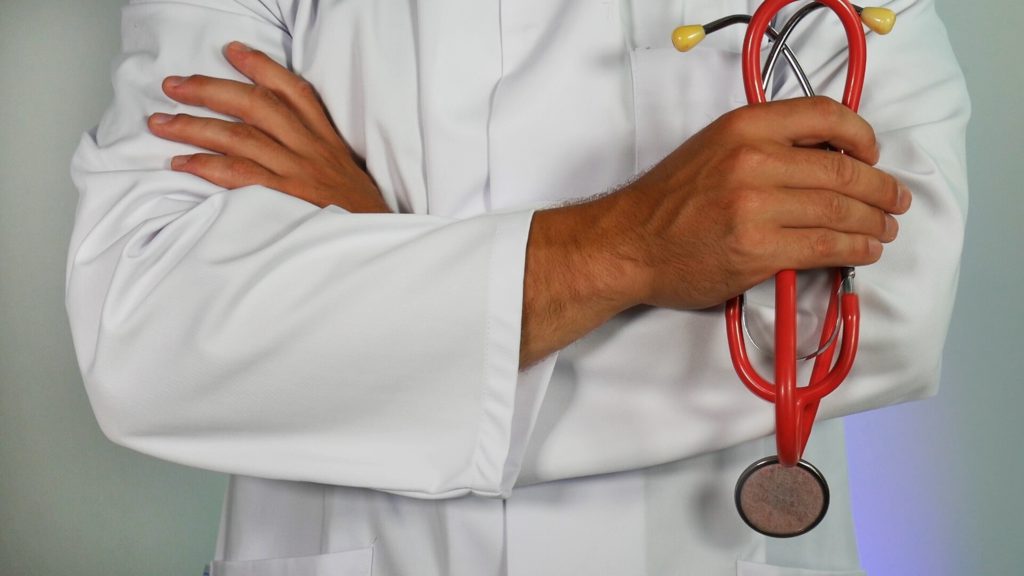
Breaking the news to loved ones
My immediate family was at the hospital with me when I got diagnosed. I didn’t let my son tell any of his coaches or anyone on the trip. I just wanted to go have a normal time for him. I didn’t want us to get treated any differently.
»MORE: Breaking the news of a diagnosis to loved ones
When did you discuss your treatment plan?
I got back from the trip. I went to her office, and this is when I realized she’s an angel. She said, “The only thing I can offer you is chemo.”
I said, “That’s a strange way to put that. What do you mean?”
She said, “I have a colleague named Dr. Barrientos. I used to work with her, and she had a spot open in a study. You have an appointment tomorrow at 10:00 a.m.”
She didn’t try to keep me as her own patient. She knew there was someone who could potentially treat me better, and she admitted it. I find that absolutely incredible.
The day I get the remission confirmation from Dr. Barrientos, I’m going to bring Dr. Roy like 2 dozen roses or something because she could’ve just said, “You’re my patient. It’s chemo time,” but she didn’t.
The next day, my wife and I went to the appointment with Dr. Barrientos, and I got enrolled in the study. I got the last spot in the study, and I’m the last patient in the study.
Clinical Trial
Describe your clinical trial for CLL
It’s venetoclax and ibrutinib. Ibrutinib came first, and then we did venetoclax. That started in April of 2018. I took the ibrutinib every morning for 3 months.
Then after the 3 months, you can start the venetoclax, which is the chemo part of it. To do that, though, you have to do what they call a ramp up. You have to be in the hospital for 3 days for 5 consecutive weeks while they up your dosage.
One of the side effects of venetoclax is tumor lysis syndrome, so they monitor you every 4 hours.
They start your fluids on Wednesday. Thursday morning, they start you on the first dose and monitor your blood every 4 hours for 24 hours. If you have no issues, they let you go home the next day.
They do the same process every week while upping the dose all the way to 400 mg. The dosage goes 20 mg, 50 mg, 100 mg, 200 mg, and then finally 400 mg. Each week, they’re monitoring the ramp up in milligrams.
»MORE: Read more on FDA approvals of clinical trials
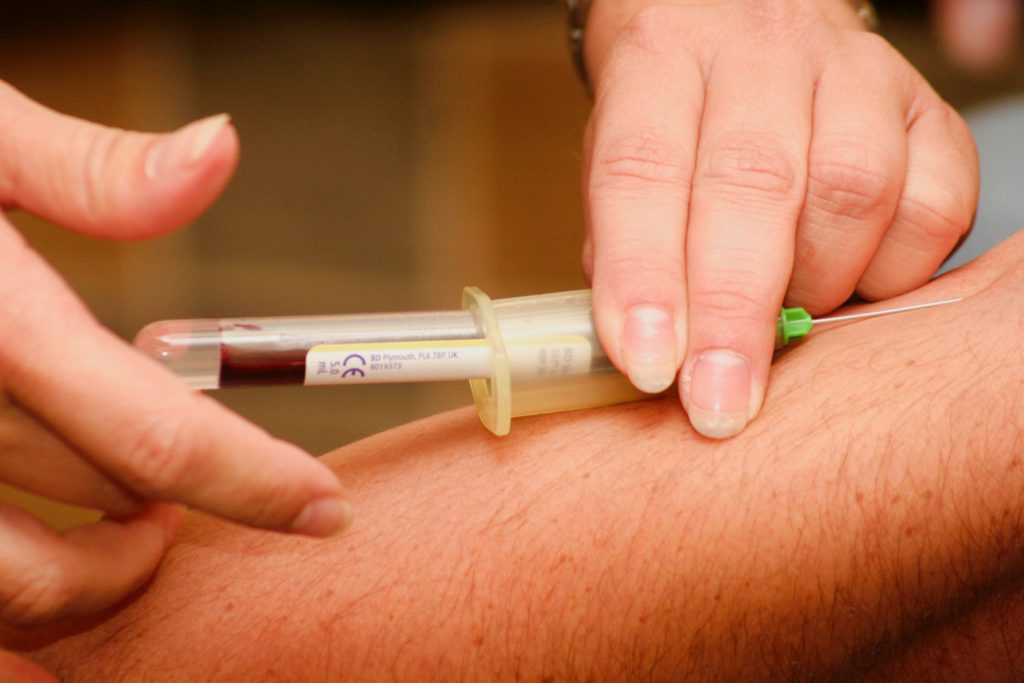
High levels of phosphorus
I started on the 20 mg dose. I was fine, and everything was great. I went back in the next week, and we started the 50 mg. They gave it to me, and my phosphorus went through the roof. I didn’t even know what phosphorus was.
Apparently, tumor lysis syndrome comes from a rise in uric acid and in your phosphorus. They gave me allopurinol to keep my uric acid down.
I had a dangerous level of phosphorus for the trial.
The nephrologist kind of laughed because it wasn’t high enough to be of concern to them normally, but for the trial, it was too high. Dr. Barrientos was crazy on top of it, like she should’ve been.
They checked my blood every 4 hours for 4 days instead of just for 24 hours. I had to be in the hospital for 5 days that week so they could monitor me. They had me on Renagel (sevelamer) and Phoslo (calcium) to keep the phosphorus down. They finally got it down, and I got to go home.
I went back the next week for the 100 mg, and I had the same issue. It was such a battle with the phosphorus each time.
Changing diet to lower phosphorous
They had the nephrologist come in, and they said they wanted to change my diet and asked what I had been eating. I said I’d been eating so healthy and losing weight.
They asked me what I had for breakfast. I said plain oatmeal with almond milk. They said almond milk is twice as high in phosphorus than regular milk and oatmeal is incredibly high in phosphorus. I couldn’t eat that anymore.
They asked me what I’d been snacking on. I told them I’d only been snacking on raw almonds. They said nuts are incredibly high in phosphorus. Can’t do it anymore.
They asked about lunch. I’ve had the same lunch every day for 2 years. I have a peanut butter and jelly sandwich on whole grain bread. I use no-salt and no-sugar peanut butter. It tastes like crap. I use no-sugar jelly because I’m trying to lose weight.
They said I couldn’t eat peanut butter. Incredibly high in phosphorus. Couldn’t eat whole wheat bread. I had to have white bread.
They asked about dinner. I’d been eating lean hamburgers or something. Apparently, those are totally high in phosphorus too.
They seemed to have come to the conclusion that my healthy diet, which certainly might’ve been healthy in other circumstances, was packed with phosphorus and not healthy for that situation.
The problem is there’s not a diet that’s low in phosphorus that’s not high in sugar. The white bread and all that is high in sugar. All the sudden my blood sugar is up, and they ask what I’ve been eating.
We go through this round and round, and finally I’m like, “So what the hell can I eat?” This has been the battle.
Vision problems
I finally get through the venetoclax and changed my diet. I’m eating nothing but white rice, grilled chicken and grilled vegetables. I never want to see that food again, but it’s still what I’m eating.
I stayed on the phosphorus drugs. I’m not on the venetoclax full dosage at home 3 or 4 days, and my vision changes dramatically. I could see. I still had my vision, but everything was blurry. I had never had a floater before, and I had a floater.
I called Dr. Barrientos. She wanted me to come in. She sent me to the eye doctor. My baseline vision was 20/30. In under a week, it jumped to 20/60. The eye doctor said I had macular edema. I had swelling. I just wanted to know if I was going to be able to see again. I couldn’t drive. I couldn’t see the license plates in front of me. He said it was completely treatable.
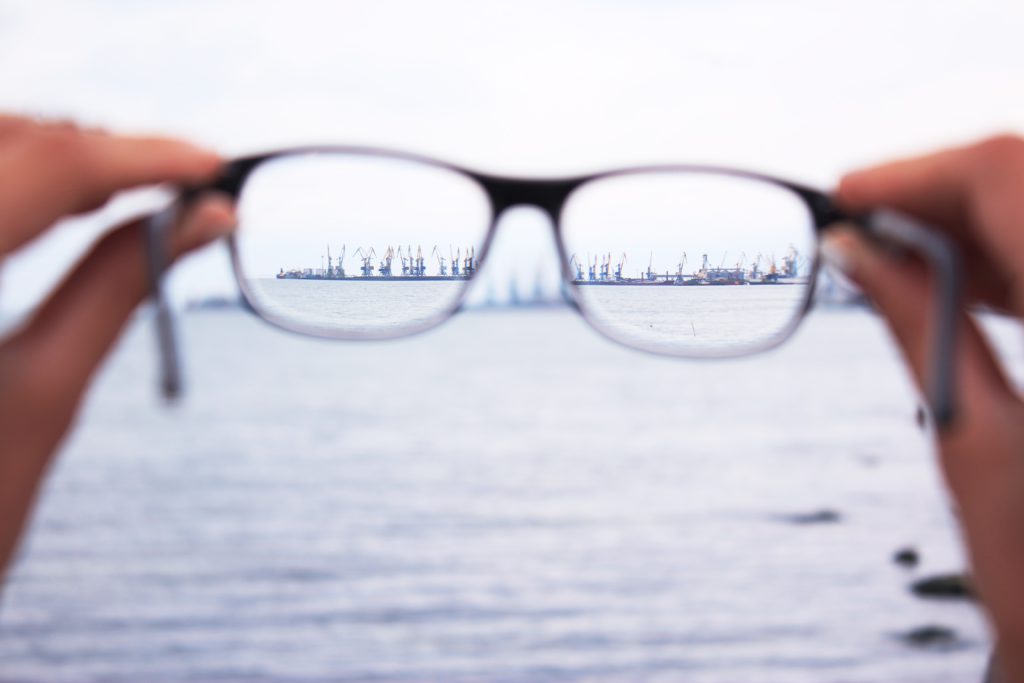
Dr. Barrientos took me off the venetoclax. That was upsetting because I had done all this work to get on the venetoclax, and now I had to get off of it.
Improving vision
My eyes went from 20/60 back down to 20/40 in like 10 days. That was very reassuring, but Dr. Barrientos wanted to wait until the swelling was down all the way. The eye doctor said he had been to a conference where one of the panels was venetoclax’s effect on the eyes. He wasn’t sure the swelling would go all the way back down.
I was the first one in Dr. Barrientos’s trial who had this problem.
She finally found one article on one other patient with my issue. I had blood tests every week and had an eye doctor appointment once a month. My progress stagnated a bit, but we eventually got the blood work and vision where it needed to be.
It took a year and a month to get back in the hospital. It took that long to get back to the levels I needed to start the ramp up again. In August of 2019, I went back into the hospital.
»MORE: Hear from CLL specialist, Dr. Jacqueline Barrientos
Blood pressure problems
One of the side effects of ibrutinib is that it can raise your blood pressure. I hadn’t had any of those issues, and I was ready to go back on venetoclax before August, but I started having blood pressure problems. I started on blood pressure medicine.
What other side effects did you get from the medications?
At one visit with Dr. Barrientos, I went to sit up after an EKG and got really dizzy. She told me I had to go back to the hospital. They diagnosed me with what they thought was vertigo. They ran all kinds of tests.
During the CT scans that are required for the surgery, they found a small mass on my pituitary. They did a scan at the beginning. They didn’t notice it on the first scan, but they noticed it on one of the later scans. It hadn’t changed since the first scan. She put me on a drug I can’t pronounce. One of the side effects was dizziness.
I stopped taking the drug that was meant to shrink the little mass on the pituitary. I felt better. That’s when I was finally ready to try the ramp up again.
At present, the only side effect I experience is being tired. The venetoclax can kind of knock it out of you, but it’s not bad. That’s really the only lasting side effect I experience.
How did the ramp up go the second time?
I had zero problems with the first week. We talked about doing the second week outpatient. We decided to go ahead and do it inpatient just to be safe. I did all 5 weeks, and I didn’t have any issues. I didn’t eat the hospital food. I stayed on my changed diet.
I’ve been on the venetoclax ever since, with no blurry vision or anything. Everything is going great. Everyone should see Dr. Barrientos. She is on top of everything. It took a while to get everything fine tuned, but it’s all going well.
They haven’t figured out why I had such a hard time compared to the other trial patients, but they’ve pretty much decided it was because my original healthy diet was too high in phosphorus.
What do you do through the clinical trial period?
I’m getting blood work done once a month. I have a bone marrow biopsy and a CT scan scheduled (in 6 months). They’re required for the trial. Again, at the end of the trial in June, they’ll do another biopsy and scan. That’s when I’ll be able to hear them say I’m officially in remission.
She can’t say remission until I finish the full trial protocol and bone marrow biopsy. All my numbers look great right now. Everything is going in the right direction. If I went to get life insurance and they took my blood, they wouldn’t know I had CLL unless I told them.
What are the next steps after the trial?
It’s remission. Beyond that, that’s the part of the trial they don’t know yet. They don’t know how long people from the trial are going to be in remission. It could be a year, 5 years or forever. They don’t know.
At that point, I’ll do blood tests every 3 months with Dr. Barrientos to see how things are going.
If it comes back, we’ll just treat it accordingly. If I ever need the trial drugs again, they’re provided to me for free for the rest of my life. That was part of the trial, which is great because they’re 15 grand a month for the drug.
Why did you choose to go on a clinical trial?
My mom had ovarian cancer a couple of years ago. She was older, but the chemo just destroyed her.
For the 4 or 5 days after, she was just out of commission. I didn’t want to go through that. I thought if there was a way to avoid that, I wanted to.
If the trial didn’t work, I always had chemo as an option, but once I had chemo there was no going back. I wanted to give the trial a try.
I trusted Dr. Roy. I have a really close friend who has a sister that’s a nurse at Sloan Kettering. I called and asked if they could ask the sister who I should see. She called me herself, and she said, “It’s not someone at Sloan. It’s Dr. Rai at Northwell.”
That’s the doctor who Dr. Barrientos works with. It’s Dr. Rai’s office that I go to. I told her, “Wow, it’s crazy that you’re telling me this because that’s the doctor I’ve already gone to see.” It just made me feel so good about my decision.
Helping patients in the future
I experienced immense frustration at a certain point because of all the complications. I was never mad at the study or Dr. Barrientos.
Other than that, nothing really threw me for a loop. The vision stuff was scary. Nothing has thrown me for a loop or been too much to handle, but it’s definitely been frustrating at times.
I’ve had some friends and coworkers say I’m a guinea pig. I say, “Yeah, I am. That’s what I signed up for.” They’ll ask, “Well, are they more interested in getting their information, or are they interested in you?” I’ve never ever once felt for a second that they were not interested in me.
I’m sure they’re very thrilled to have all the information they got from me and my complications, but they’ve never once made it feel like they were learning at my expense.
I think about the people who came before me in earlier phases of the trial. Some people died from tumor lysis syndrome. Some people died from the blood pressure issues because they didn’t know it could raise it too high.
Think of how they helped the people after them. Think of how they helped me. Now I can be that for the next people who need these drugs. If I can do something to help someone after me, I think that’s great.
What advice do you have for other patients about clinical trials?
I would say 100% go for it. Do you research and make sure it’s the right one for you, but go for it.
Could I have been done in 6 weeks with chemo? Sure, but I would’ve had to have done chemo. I didn’t want to do that. Again, think about the information that my frustration and experience is going to provide.
For example, Dr. Barrientos did a lecture for the Leukemia & Lymphoma Society in Manhattan, and I went to hear her speak. She’s so impressive. She’s unbelievable. My wife and I went, and the room was packed.
The questions she was asked were amazing. Her knowledge is just incredible. She gave her presentation, which was great, but the questions got me. She knows the slides, but she didn’t know what the questions would be. We sat in awe watching her answer these complicated questions with such skill.
The point is, though, there were 5 patients at that lecture who had the eye issue I had. 5. Not only did they have the issue, but their doctors had no idea what to do with the eye issue and had no idea it even existed.
After the lecture, I gave all the patients the information Dr. Barrientos gave me.
I emailed them, and they emailed their doctors. Some of them contacted Dr. Barrientos. My issue with my eyes was scary, but when you share it with other areas, there were other people out there.
Now, these other people are going to know how to treat this issue because of me, my experience and Dr. Barrientos’s help.
Creating a win-win for patients and doctors
That’s the kind of information that’s so invaluable to the doctors. I’m allowed the opportunity to not have chemo and still achieve remission, and the doctors are getting the information from my experience to help other people. It’s a win-win all the way.
It’s frustrating, and it’s a longer process than the chemo probably would’ve been, but even after knowing everything I went through, I’d do it again. I wouldn’t change a thing.
I was worried they were going to throw me out of the trial. Dr. Barrientos fought like hell for me and kept me in.
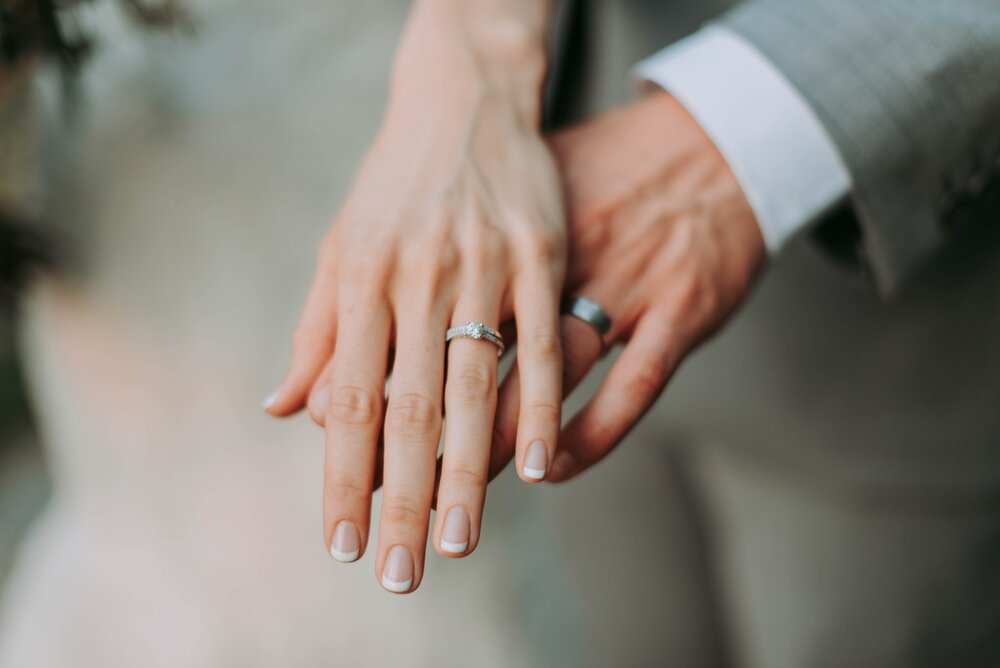
Reflections
How did the experience affect your relationship with your wife?
I’ve tried to just be status quo like nothing has changed. I’m sure I’ve fallen short, but I’ve tried to just be the same old me through this. My wife and my kids have been so supportive of me through the whole thing.
I would say it’s probably made us closer. My daughter has said that she thinks this whole thing has made the family closer.
My wife gets anxious sometimes, but I try to talk about something else when she’s feeling that way. I just try to show her that I’m okay, and everything will be okay.
»MORE: 3 Things To Remember If Your Spouse Is Diagnosed With Cancer
Living with cancer as a chronic illness
I don’t think my case is like most people. Not that the cancer part is different. That’s the same, but I’ve never felt sick. I’m sitting in a hospital room watching TV or surfing the internet on my laptop. I’ve always felt fine. It’s been strange. I’ve never considered myself “sick.”
I just think of this as something that I have, and we’re treating it. I think maybe if I didn’t feel well, it would be a different story.
It’s not hard to remember I have cancer, but it definitely is weird. I’ll go do something and be exhausted. I’ll be like, “Why am I so tired?” Then I remember, “Oh, right. I have cancer.” Those moments are when I think about it for a second, but usually I just try to be me.
Every morning, when you pull out 8 pills that you have to take, that sucks, but it is what it is.
What advice do you have for someone who has just been diagnosed with CLL?
Get the proper doctor. If you can get Dr. Barrientos, no matter where you are, do it. Even if it’s just a consult, I would do it. She has a patient who flies in from Wisconsin to New York just to see her.
It sounds crazy because it’s cancer, but with CLL, don’t worry. It sucks. It sucks to have it. It sucks to say you have cancer. If you do get cancer and it’s CLL, just know you have the ‘good kind.’ Don’t worry.
Get it diagnosed. Get it taken care of. Get the right doctor. Make sure you’re on a regimen that you’re comfortable with. The ibrutinib and venetoclax is the gold standard right now, so if you don’t have a doctor that is going to at least explore that, find someone else. It’s a wonder cocktail. It’s absolutely amazing.

Inspired by Sean's story?
Share your story, too!
Chronic Lymphocytic Leukemia Stories
Nadia K., Small Lymphocytic Lymphoma (SLL)
Symptoms: Rash, lump under arm, fatigue
Treatments: Ibrutinib and acalabrutinib
